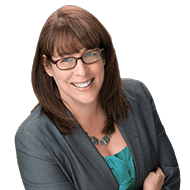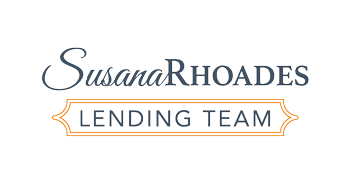Reverse Mortgages
WHAT IS THE DIFFERENCE BETWEEN PRE-APPROVED AND PRE-QUALIFIED?
When a homebuyer is pre-qualified, he or she has provided the lender with the basic information to determine which loan program the homebuyer may qualify for. Whereas, when a homebuyer is pre-approved, the lender has collected, verified and presented the information needed for underwriting and approval.
WHAT ARE THE DIFFERENCES BETWEEN A REVERSE MORTGAGE AND A HOME EQUITY LOAN?
With a second mortgage, or a home equity line of credit, borrowers must make monthly payments on the principal and interest. A reverse mortgage is different, because it pays you – there are no monthly principal and interest payments. With a reverse mortgage, you are required to pay real estate taxes, utilities, and hazard and flood insurance premiums.
IS “COUNSELING” INVOLVED? WHAT IS THAT ABOUT?
Borrowers who wish to do a reverse mortgage are required to complete a counseling session over the phone or in person with a HUD trained counselor. Our Reverse Mortgage Specialist will provide you information needed to meet this requirement. It is a HUD requirement and will help you completely comprehend all aspects of the loan. You may ask the counselor any questions you wish.
WITH A REVERSE MORTGAGE, WILL WE HAVE AN ESTATE THAT WE CAN LEAVE TO HEIRS?
When the home is sold or no longer used as a primary residence, the cash, interest, and other HECM finance charges must be repaid. All proceeds beyond the amount owed belong to your spouse or estate. This means any remaining equity can be transferred to heirs. No debt is passed along to the estate or heirs.
CAN I REALLY PURCHASE A NEW HOME WITH A REVERSE – HECM?
If you are 62 years or older, one initial investment (down payment) towards your purchase enables you to buy a new home without taking on any required monthly mortgage payments through the Reverse-HECM Loan.1 The Home Equity Conversion Mortgage (HECM) for Purchase loan is safe and insured by the Federal Housing Administration (FHA).2 This loan works by allowing you to use the equity from selling your previous home to buy your next home—all in one transaction.
The HECM for Purchase Loan allows you to take some of the worry out of buying your dream home, downsizing, or relocated closer to loved ones. Regardless of changes in home value, you will never be responsible for mortgage payments as long as you live in the home.
Customer Benefits Include:
- Eliminating your monthly mortgage payments
- Increasing your purchase power
- Preserving your cash
- You are still required to pay property taxes, pay homeowners insurance, and maintain the home according to FHA requirements. Additionally, the home must be your primary residence—meaning you live in the home at least 51% of the year. Failure to meet these requirements can trigger a loan default that may result in foreclosure.
- Federal Housing Administration (FHA) mortgage insurance premiums (MIP) will accrue on your loan balance and are part of your loan’s closing costs. However, you can work with your reverse mortgage lender to have this expense financed as part of your loan. The initial MIP expense is 2% of the home value—up to, but not exceeding, $12,723. Over the life of your loan, you are also responsible for an annual MIP charge equal to .5% of the outstanding mortgage balance.
WHAT ARE THE CLOSING COSTS?
When closing a Reverse-HECM loan, typically, your only out-of-pocket fee is the price independent counseling required by the Housing and Urban Development (HUD). By law, the reverse mortgage lender cannot pay this fee; however, it is possible to finance the cost of counseling into the loan or to get the fee waived by the counseling agency.
Unlike other loan types, all closing costs are generally financed as part of your Reverse-HECM loan. The most significant closing costs are often the initial Mortgage Insurance Premium (MIP) through the Federal Housing Administration (FHA), the loan origination fee, and the title insurance.
Traditional Mortgages
WHAT IS THE DIFFERENCE BETWEEN PRE-APPROVED AND PRE-QUALIFIED?
When a homebuyer is pre-qualified, he or she has provided the lender with the basic information to determine which loan program the homebuyer may qualify for. Whereas, when a homebuyer is pre-approved, the lender has collected, verified and presented the information needed for underwriting and approval.
WHAT IS THE DIFFERENCE BETWEEN A TRADITIONAL AND A FEDERAL HOUSING ADMINISTRATION (FHA) MORTGAGE?
Both of these mortgages assist homebuyers accomplish the same goals; however, there are clear differences in how Traditional Mortgages and FHA Mortgages help the borrower.
WHAT IS PRIVATE MORTGAGE INSURANCE (PMI)? WHEN DOES THIS APPLY TO ME?
Private Mortgage Insurance is provided by a private mortgage insurance company to protect lenders against loss if a borrower defaults. Private Mortgage Insurance is generally required for a loan with an initial loan to value (LTV) percentage in excess of 80%. In most cases, this will mean that you will have to pay Private Mortgage Insurance if your down payment is less than 20% of the value of the home you are purchasing or refinancing. The cost of the mortgage insurance is typically added to the monthly mortgage payment.
WHAT IS THE DIFFERENCE BETWEEN INTEREST RATE AND APR?
Your interest rate is the monthly cost you pay on the unpaid balance of your home loan. An Annual Percentage Rate (APR) includes both your interest rate and any additional cost or prepaid finance charges such as the origination fee, points, private mortgage insurance, underwriting and processing fees (your actual fees may not include all of these items). While your interest rate is the rate at which you will make your monthly mortgage payments, the APR is a universal measurement that can assist you in comparing the cost of mortgage loans offered by different mortgage lenders.
WHICH AMOUNTS ARE INCLUDED IN MY MONTHLY PAYMENTS?
If you have a fully amortizing mortgage, portions of your monthly mortgage payment go toward loan principal and interest. Interest-only mortgage payments include only the interest that is due on the outstanding principal balance. If your mortgage carries mortgage insurance, a portion of your monthly mortgage payment will pay this also, unless the lender has paid your mortgage insurance or you have paid your mortgage insurance upfront. If you have set up an escrow account for your mortgage, then portions also go toward your property taxes and homeowners insurance.
WHAT ARE THE CLOSING COSTS?
Closing costs include items like appraisal fees, title insurance fees, attorney fees, pre-paid interest and documentation fees. These items are usually different for each customer due to differences in the type of mortgage, the property location and other factors. You will receive a good faith estimate of your closing costs in advance of your closing date for your review.

